13 Best Herbal Teas For Low Sperm Count
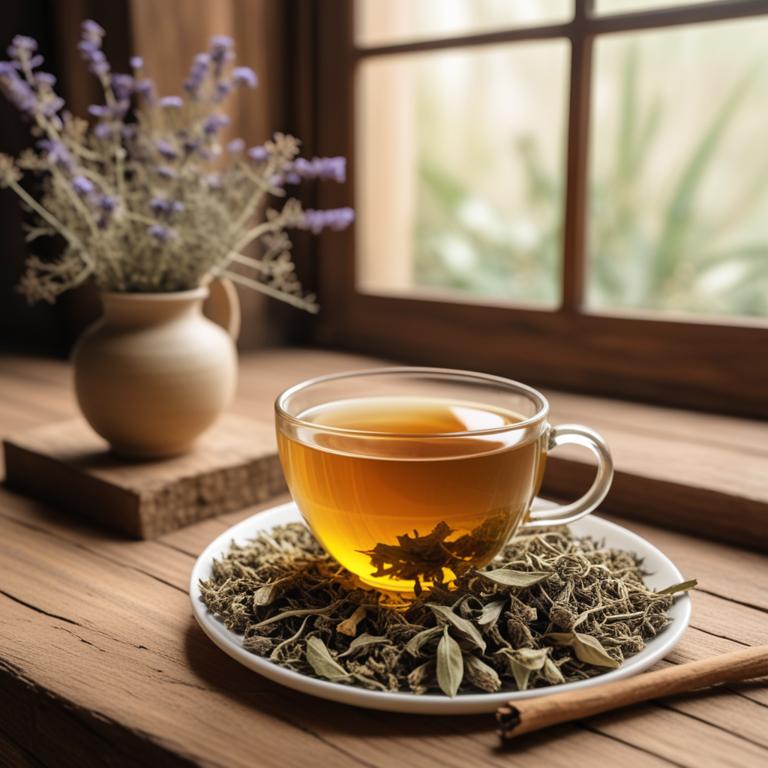
Herbal teas for low sperm count are a type of natural remedy that involves consuming specific herbal infusions to improve sperm count and overall reproductive health.
These teas work by reducing oxidative stress, improving sperm motility, and enhancing testosterone levels, thus addressing the underlying causes of low sperm count.
Some examples of herbal teas that have been shown to be effective in treating low sperm count include Tribulus terrestris, which boosts testosterone production; Ashwagandha, which reduces stress and improves fertility; Maca, which balances hormonal imbalances; and Ginseng, which enhances sperm quality and motility.
Additionally, other herbal teas such as Stinging Nettle, Licorice Root, and Saw Palmetto have also been used to treat low sperm count due to their anti-inflammatory and antioxidant properties.
Related Study
According to the study in "Journal of family & reproductive health", teas for low sperm count may be beneficial, as the review of 20 studies showed that 11 different medicinal plants, including those that may be found in teas, had positive effects on improving sperm and reproductive parameters in men.
Below there's a list of the 13 best herbal teas for low sperm count.
Table of Contents
- 1. Panax ginseng teas
- 2. Tribulus terrestris teas
- 3. Withania somnifera teas
- 4. Curcuma longa teas
- 5. Zingiber officinale teas
- 6. Ginkgo biloba teas
- 7. Cuscuta chinensis teas
- 8. Rosmarinus officinalis teas
- 9. Mucuna pruriens teas
- 10. Piper nigrum teas
- 11. Cnidium monnieri teas
- 12. Silybum marianum teas
- 13. Cassia auriculata teas
Also, you may be interested in...
Today Free Bonus!
The Ultimate Herb Drying Checklist
(For Long-Lasting Powerful Medicinal Effect)
How to easily dry herbs that don't mold and that keep their strong medicinal power for more than 1 year.
1. Panax ginseng teas

Panax ginseng teas have been traditionally used to treat low sperm count due to their adaptogenic properties, which help to regulate the body's stress response and improve overall reproductive health.
The bioactive constituents of Panax ginseng, including ginsenosides and panaxynol, have been shown to improve sperm count and motility by enhancing testosterone production and reducing oxidative stress.
This herbal preparation helps to treat low sperm count by increasing the production of testosterone, improving sperm morphology, and reducing inflammation in the reproductive system.
The benefits of using Panax ginseng teas to treat low sperm count include improved fertility, increased sperm count and motility, and enhanced overall reproductive health.
Related Study
According to "Iranian journal of nursing and midwifery research", Panax ginseng teas may be beneficial for improving sexual function and semen parameters, including normal viscosity of semen, in men with low sperm count.
Recipe:
- Gather 1 cup of water, 2 tablespoons of dried Panax ginseng root, and a tea infuser.
- Boil the water in a kettle or pot and remove from heat.
- Place the dried Panax ginseng root in the tea infuser and put it in the cup.
- Pour the hot water over the Panax ginseng root in the tea infuser and let it steep for 5-7 minutes.
- Strain the tea and drink it warm, 2-3 times a day, for 2-3 months to potentially improve low sperm count.
Panax ginseng teas can help increase sperm count, but they may also cause side effects such as insomnia, headaches, and rapid heartbeat in some individuals, particularly when consumed in large quantities or for extended periods of time.
It is recommended to be cautious when using Panax ginseng teas to treat low sperm count, as excessive consumption can lead to interactions with other medications and exacerbate underlying health conditions such as high blood pressure, anxiety, and stomach ulcers.
Panax Ginseng Tea on Amazon
Hyleys Ginseng & Green Tea with Natural Guarana & Orange Flavor - Herbal Energy Tea - 25 Tea Bags
Disclaimer: We earn a commission if you click this link and make a purchase at no additional cost to you.
2. Tribulus terrestris teas

Tribulus terrestris teas are a popular herbal preparation used to treat low sperm count ailment due to its properties that help to improve sperm quality and count by increasing testosterone levels.
This herbal preparation helps to treat low sperm count by stimulating the production of luteinizing hormone, which in turn increases the production of testosterone, a key hormone responsible for sperm production.
The bioactive constituents of Tribulus terrestris teas, such as furostanol saponins and flavonoids, play a crucial role in its therapeutic effects, as they help to improve sperm motility and morphology.
The benefits of using Tribulus terrestris teas to treat low sperm count include improved fertility, increased libido, and enhanced overall reproductive health.
Related Study
According to the Journal of ethnopharmacology, Tribulus terrestris teas for low sperm count may be beneficial as the methanol extract of T. terrestris has been shown to improve semen quantity and quality, and ameliorate the adverse effects of nicotine and lead-induced degeneration of sperm quality in male rats.
Recipe:
- Gather 1 cup of dried Tribulus terrestris root or powder, and 2 cups of water.
- Combine the dried root or powder with the water in a saucepan.
- Heat the mixture over low heat for 5-7 minutes, or until the liquid is warm.
- Strain the liquid into a cup using a fine-mesh sieve or cheesecloth.
- Drink 1 cup of the tea 2-3 times a day, ideally before meals, for 3-6 months.
Tribulus terrestris teas can be used to potentially treat low sperm count, but it may cause side effects such as dizziness, headaches, and stomach upset due to its high levels of saponins and other compounds.
To safely use Tribulus terrestris teas, take it in moderation, avoid consuming it before bed as it may cause insomnia, and start with a low dose to gradually increase the amount as your body adjusts to it.
3. Withania somnifera teas
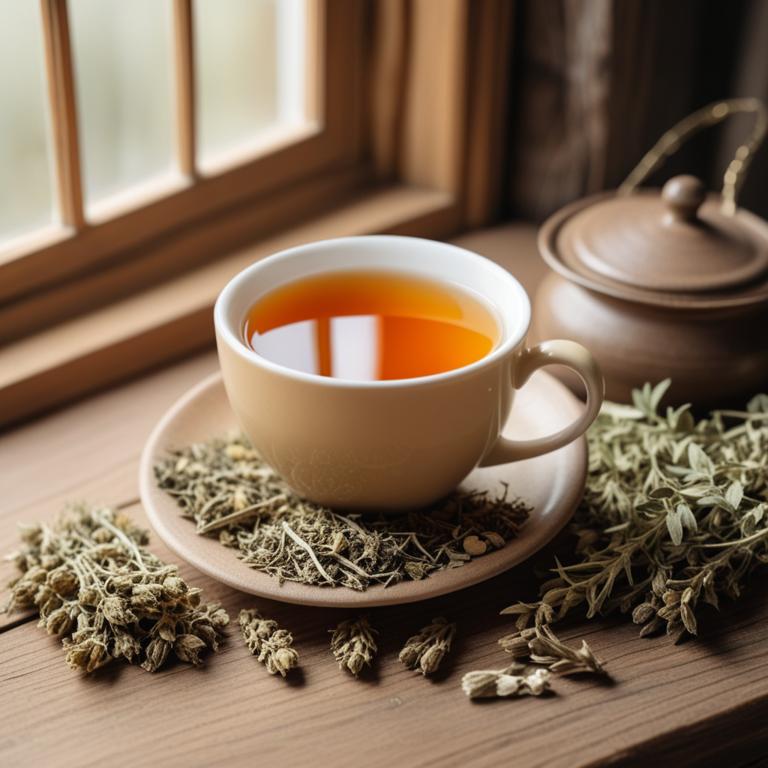
Withania somnifera teas, also known as Ashwagandha, have been traditionally used to treat low sperm count ailment due to their adaptogenic, antioxidant, and anti-inflammatory properties.
The bioactive constituents of Withania somnifera teas, including withanolides and alkaloids, help to reduce oxidative stress and inflammation, which can contribute to low sperm count.
By reducing stress and promoting overall health, Withania somnifera teas may help to increase sperm count and motility, thereby improving fertility in men.
Regular consumption of Withania somnifera teas has been shown to provide numerous benefits, including improved sperm quality, increased testosterone levels, and enhanced overall reproductive health.
Related Study
According to "BioMed research international", Withania somnifera teas for low sperm count may improve semen quality, proposed due to enhanced enzymatic activity in seminal plasma and decreased oxidative stress.
Recipe:
- Get 1 cup of water and bring it to a boil.
- Measure 1 teaspoon of dried Withania somnifera root powder and place it in a tea infuser.
- Pour the boiling water over the tea infuser and let it steep for 5-7 minutes.
- Strain the tea into a cup and discard the solids.
- Drink 1 cup of the tea 2-3 times a day for 3-6 months for best results.
Withania somnifera teas can be used to potentially increase fertility in individuals with low sperm count, but it may also cause side effects such as stomach upset, diarrhea, and allergic reactions in some users.
It is recommended to use Withania somnifera teas in moderation, starting with small doses and gradually increasing as needed, and to avoid using it for extended periods of time to minimize the risk of interactions with other medications and to prevent over-stimulation of the body's hormonal systems.
4. Curcuma longa teas

Curcuma longa teas, derived from the rhizomes of the turmeric plant, have been traditionally used to treat low sperm count, a condition characterized by reduced semen volume and decreased sperm count.
The anti-inflammatory and antioxidant properties of Curcuma longa teas help to reduce oxidative stress and inflammation in the testes, thereby promoting a healthy sperm environment.
The bioactive constituents of Curcuma longa teas, including curcumin, demethoxycurcumin, and bisdemethoxycurcumin, have been shown to enhance sperm motility and count by reducing apoptosis (programmed cell death) and increasing the production of antioxidant enzymes.
By incorporating Curcuma longa teas into their lifestyle, individuals can experience benefits such as improved fertility, increased sperm quality, and enhanced overall reproductive health.
Related Study
According to "Planta medica", Curcuma longa teas for low sperm count may have a positive effect as the study found that C. longa treatment induced an increased sperm count in male mice.
Recipe:
- Get 1 teaspoon of Curcuma longa powder. You can buy it at a health food store or online.
- Boil 1 cup of water in a pot.
- Add the Curcuma longa powder to the boiling water and stir well.
- Reduce heat and simmer for 5-7 minutes. Strain the tea into a cup.
- Drink 1 cup of the Curcuma longa tea, 2-3 times a day, with meals, for 2-3 months to see improvement in sperm count.
Curcuma longa teas can be used to potentially treat low sperm count, but it may cause side effects such as diarrhea, nausea, and stomach upset due to its high polyphenol and curcumin content.
When using Curcuma longa teas to address this issue, it is essential to consume it in moderation and to avoid excessive intake, especially on an empty stomach, to minimize the risk of side effects.
Curcuma Longa Tea on Amazon
Pure Ceylon Turmeric Brew - 100% Organic Ceylon Turmeric Tea Bags (40 Sachets - pack of 2 – 20 COUNT PER BOX)
Disclaimer: We earn a commission if you click this link and make a purchase at no additional cost to you.
5. Zingiber officinale teas

Zingiber officinale teas, also known as ginger tea, have been traditionally used to treat low sperm count in men due to its anti-inflammatory and antioxidant properties.
The bioactive constituents of ginger tea, including gingerols and shogaols, help to improve sperm quality and count by reducing oxidative stress and inflammation in the reproductive system.
The antioxidants present in ginger tea, such as flavonoids and phenolic acids, also help to protect the sperm from damage caused by free radicals, thereby improving fertility.
Regular consumption of ginger tea has been shown to improve sperm count, motility, and morphology, making it a beneficial herbal preparation for treating low sperm count.
Related Study
According to "JBRA assisted reproduction", Zingiber officinale teas for low sperm count may be beneficial due to its potential antioxidant properties and low side effects, as mentioned in a study reviewing medicinal plants that affect sperm and testosterone production.
Recipe:
- Gather 1 cup of fresh Zingiber officinale (ginger) roots. Wash them clean.
- Cut 2-3 inches of ginger into small pieces. You need 2 tablespoons of ginger for this recipe.
- Boil 1 cup of water in a kettle or pot. Bring the water to a rolling boil.
- Add 2 tablespoons of ginger pieces to the boiling water. Reduce heat to low and let it simmer for 5-7 minutes.
- Strain the tea into a cup using a strainer or cheesecloth. Discard the ginger pieces. Drink 1-2 cups of this tea 2-3 times a day to help with low sperm count.
Zingiber officinale teas can be used to treat low sperm count, but its consumption may result in side effects such as stomach upset, nausea, and diarrhea due to its high ginger content.
Precautions should be taken to avoid excessive consumption, as it may cause heartburn, interact with blood-thinning medications, and exacerbate conditions like acid reflux and ulcers.
Zingiber Officinale Tea on Amazon
FGO Organic Ginger Tea, 100 Count, Eco-Conscious Tea Bags, Caffeine Free, Packaging May Vary (Pack of 1)
Disclaimer: We earn a commission if you click this link and make a purchase at no additional cost to you.
6. Ginkgo biloba teas

Ginkgo biloba teas have been traditionally used to help treat low sperm count, a common issue in men experiencing fertility problems.
The herbal preparation's antioxidant and anti-inflammatory properties help to improve sperm quality and motility, making it an effective natural remedy for this ailment.
The bioactive constituents of Ginkgo biloba, including flavonoids, terpenoids, and bilobalide, play a crucial role in enhancing sperm count and fertility.
Drinking Ginkgo biloba teas regularly can help increase sperm count, improve sperm motility, and enhance overall fertility, making it a beneficial herbal preparation for men experiencing low sperm count.
Recipe:
- Gather 1 teaspoon of dried Ginkgo biloba leaves and 1 cup of boiling water.
- Steep the Ginkgo biloba leaves in the boiling water for 5-7 minutes.
- Strain the mixture into a cup and discard the leaves.
- Add 1 tablespoon of honey to the tea, if desired, and stir well.
- Drink the tea 1-2 times a day, ideally on an empty stomach, for 6-8 weeks.
Ginkgo biloba teas can be used as a potential treatment for low sperm count, but it may cause side effects such as dizziness, nausea, and stomach upset, as well as allergic reactions like skin rashes or itching in some individuals.
To minimize potential risks, it's recommended to start with a small dose, monitor body reactions, and avoid consuming Ginkgo biloba teas with other medications or substances that may interact, such as blood thinners or antidepressants.
Ginkgo Biloba Tea on Amazon
Tai Chi Think Sharp Energizing Tea (Ginseng Ginkgo Biloba) 12 Bags
Disclaimer: We earn a commission if you click this link and make a purchase at no additional cost to you.
7. Cuscuta chinensis teas
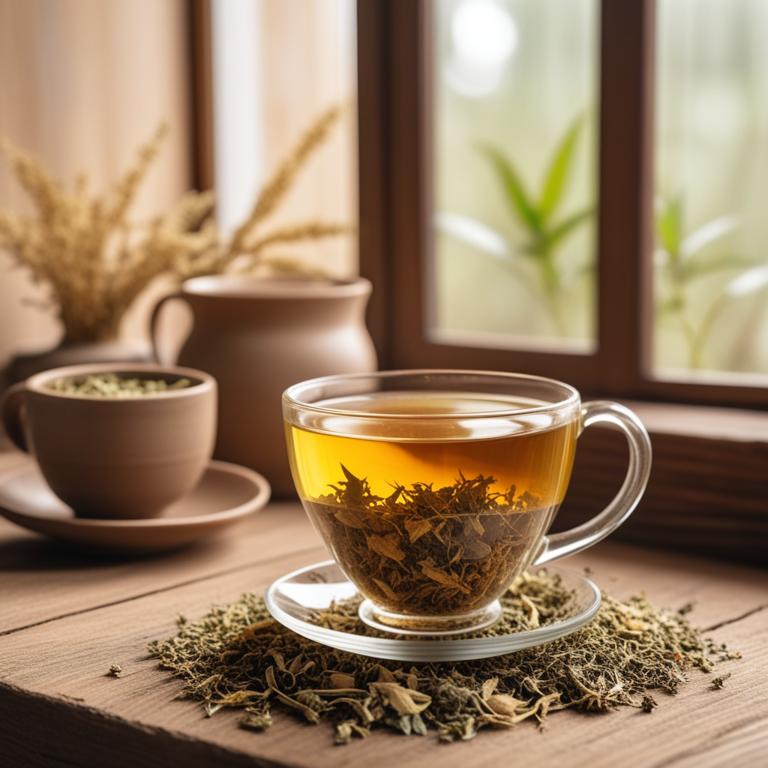
Cuscuta chinensis teas have been traditionally used to treat low sperm count ailments due to their potential properties that may help improve sperm quality and count.
The herbal preparation is believed to help treat this ailment by enhancing testosterone levels and improving sperm motility.
Cuscuta chinensis teas are rich in bioactive constituents such as flavonoids, alkaloids, and saponins that may contribute to its therapeutic effects, including antioxidant and anti-inflammatory properties.
The benefits of this herbal preparation include potential improvement in fertility, enhanced sperm count, and increased sperm motility, making it a popular choice for those seeking natural remedies for low sperm count ailments.
Recipe:
- Gather 20g of Cuscuta chinensis dried roots.
- Boil 1 liter of water in a large pot.
- Add 20g of Cuscuta chinensis dried roots to the boiling water.
- Reduce heat and let it simmer for 30 minutes.
- Strain the tea into a cup and drink 1-2 cups per day.
Cuscuta chinensis teas can be used as a potential herbal remedy to treat low sperm count, but its use may be associated with side effects such as dizziness, nausea, and stomach discomfort in some individuals.
Precautions should be taken when using this herbal preparation, including avoiding excessive consumption, as it may lead to interactions with other medications and exacerbate underlying health conditions such as kidney or liver problems.
8. Rosmarinus officinalis teas

Rosmarinus officinalis teas, also known as rosemary teas, have been traditionally used to treat low sperm count due to their potent antioxidant, anti-inflammatory, and adaptogenic properties.
The bioactive constituents of rosemary teas, including carnosic acid, rosmarinic acid, and camphor, help to improve sperm quality and count by protecting sperm cells from oxidative stress and inflammation.
Regular consumption of rosemary teas has been shown to increase sperm motility and density, thereby improving fertility and reproductive health.
The benefits of using rosemary teas to treat low sperm count include improved sperm quality, increased fertility, and enhanced overall reproductive health.
Recipe:
- Gather 1 cup of fresh Rosmarinus officinalis leaves or 1 tablespoon of dried leaves.
- Add 1 cup of boiling water to the leaves. Let it steep for 5-7 minutes.
- Strain the tea into a cup. Discard the leaves.
- Add 1 tablespoon of honey (optional) to the tea. Stir well.
- Drink the tea twice a day, before breakfast and before bedtime.
Rosmarinus officinalis teas can be used to potentially treat low sperm count due to its antioxidant properties, but possible side effects may include stomach upset, headaches, and allergic reactions such as skin irritation or hives.
Precautions should be taken when using Rosmarinus officinalis teas, such as avoiding excessive consumption, as it may cause drowsiness, and also being mindful of its potential interaction with other medications, especially blood thinners.
Rosmarinus Officinalis Tea on Amazon
Palm Beach Medicinal Herbs - Rosemary Tea - Pure Herbal Tea Series, 30ct
Disclaimer: We earn a commission if you click this link and make a purchase at no additional cost to you.
9. Mucuna pruriens teas
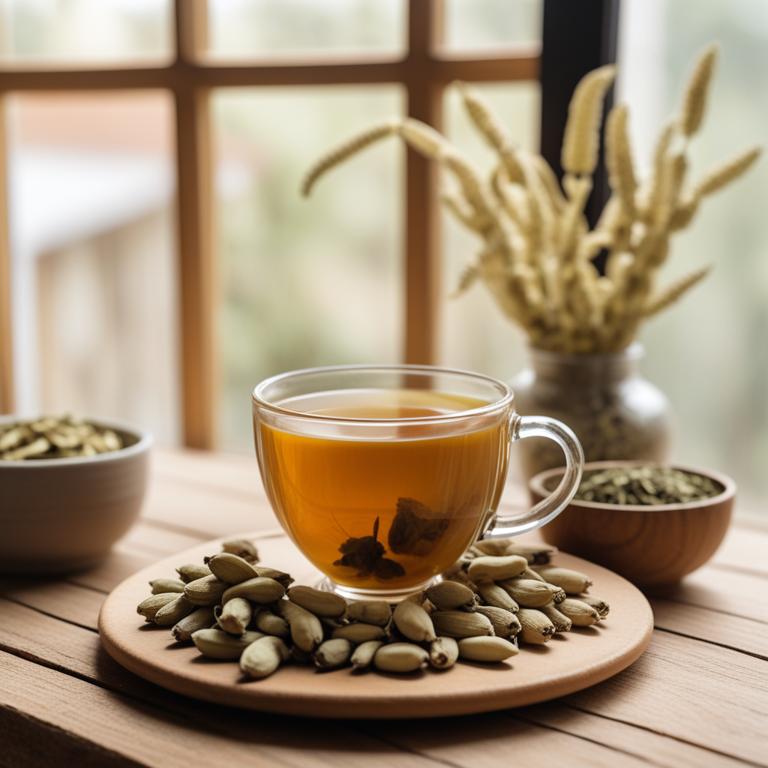
Mucuna pruriens teas have been traditionally used to treat low sperm count due to its aphrodisiac and fertility-enhancing properties.
The herbal preparation contains bioactive constituents such as L-DOPA, a precursor to dopamine, which helps to increase sperm count and motility by stimulating the release of gonadotropin-releasing hormone (GnRH) and luteinizing hormone (LH).
This, in turn, helps to improve fertility in both men and women, making it a potential natural remedy for treating low sperm count.
The benefits of Mucuna pruriens teas include improved sperm quality, increased libido, and enhanced fertility, making it a popular natural treatment for reproductive health issues.
Related Study
According to the study reviewed in the Journal of Family and Reproductive Health, Mucuna pruriens teas have been found to have beneficial effects on improving sperm and reproductive parameters, which may be beneficial for individuals with low sperm count.
Recipe:
- Gather 2 teaspoons of Mucuna pruriens powder and 1 cup of boiling water in a tea infuser or a heat-resistant cup.
- Steep the Mucuna pruriens powder in the boiling water for 5-7 minutes, then strain the mixture into another cup.
- Add 1 tablespoon of honey or sugar (optional) to the tea and stir well.
- Drink the tea immediately, ideally on an empty stomach in the morning or before bedtime.
- Repeat this process 2-3 times a day for 3-6 months to support sperm count and fertility.
Mucuna pruriens teas can be used to treat low sperm count, but it may cause side effects such as nausea, diarrhea, and stomach upset in some individuals.
To minimize potential issues, take Mucuna pruriens teas in moderation and avoid combining it with other medications, especially those that affect blood pressure or hormones, and do not consume it before bedtime as it may cause vivid dreams or insomnia.
10. Piper nigrum teas
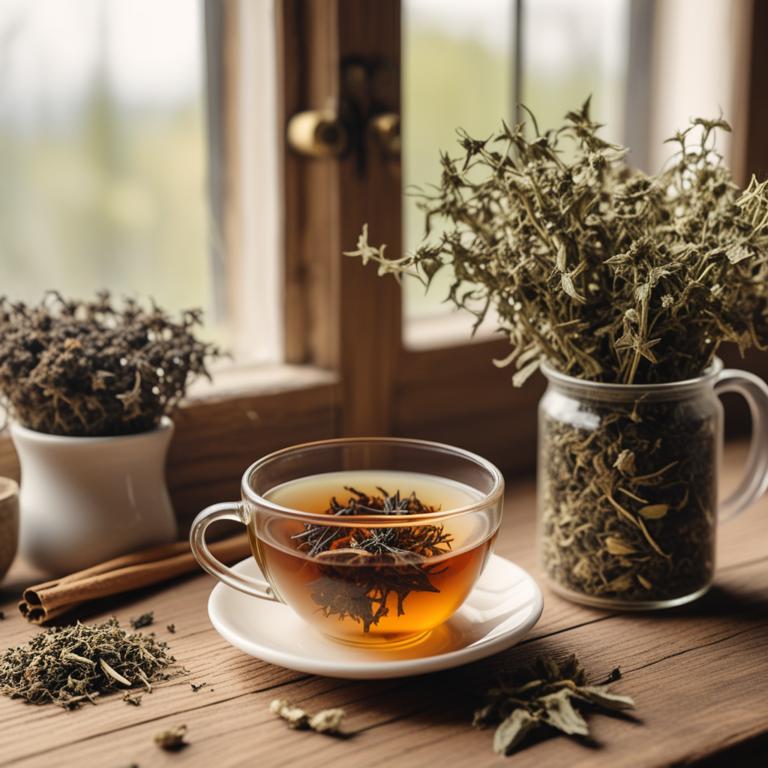
Piper nigrum teas, also known as black pepper tea, have been traditionally used to treat low sperm count ailments.
The ant-inflammatory and antioxidant properties of this herbal preparation help to improve sperm quality and count by reducing oxidative stress and inflammation in the testes.
Bioactive constituents such as piperine, a bioactive compound found in black pepper, have been shown to improve sperm motility and count by enhancing testosterone levels and improving sperm function.
The benefits of using Piper nigrum teas to treat low sperm count include improved fertility, increased sperm count and motility, and enhanced overall reproductive health.
Recipe:
- Gather 1 teaspoon of dried Piper nigrum and 1 cup of boiling water.
- Steep the Piper nigrum in the boiling water for 5-7 minutes.
- Strain the mixture into a cup and discard the Piper nigrum.
- Add 1 tablespoon of honey to the tea and mix well.
- Drink the tea once a day for 2-3 months to support reproductive health.
Piper nigrum teas can be used as a potential treatment for low sperm count, but its use may be associated with side effects such as increased heart rate, sweating, and stomach upset due to its high capsaicin content.
To minimize these side effects, it is recommended to start with a small dose, gradually increasing the amount as needed, and to avoid consuming the tea on an empty stomach, as this can exacerbate stomach upset.
11. Cnidium monnieri teas
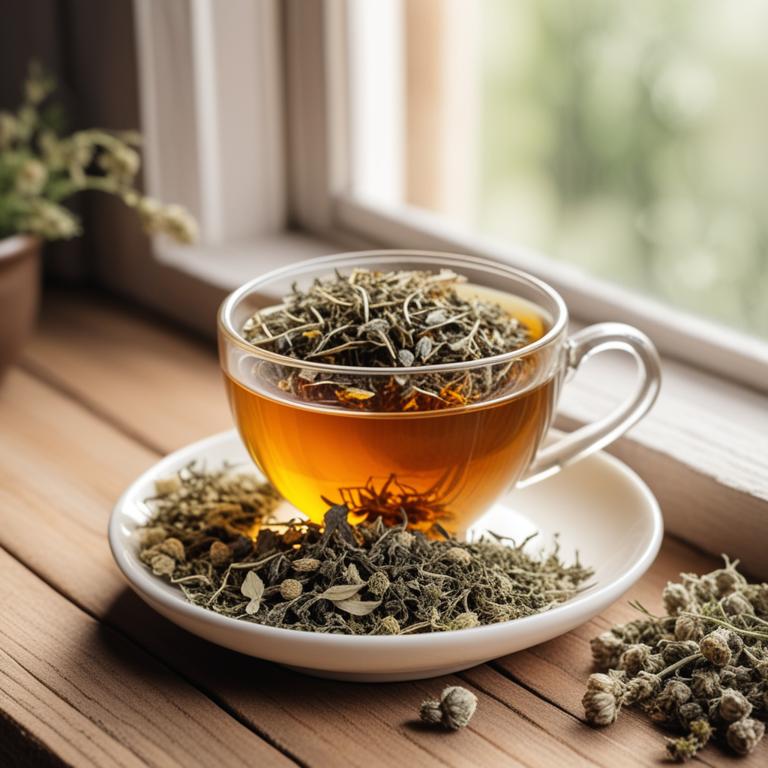
Cnidium monnieri teas have been traditionally used to treat low sperm count due to their properties that help to enhance fertility and improve reproductive health.
The herbal preparation contains bioactive constituents such as ligustilide and butylphthalide, which have been shown to have anti-apoptotic and anti-inflammatory effects that help to protect sperm cells from damage and promote their growth.
The benefits of Cnidium monnieri teas in treating low sperm count include improved sperm motility and count, as well as reduced oxidative stress and inflammation in the reproductive system.
Regular consumption of Cnidium monnieri teas may help to increase fertility and improve reproductive health in individuals with low sperm count.
Recipe:
- Gather 2 tablespoons of Cnidium monnieri dried herb and a cup of boiling water.
- Pour the boiling water over the Cnidium monnieri herb in a cup.
- Let it steep for 5-7 minutes, then strain the liquid into another cup.
- Add honey to taste, if desired, and stir well.
- Drink the tea 2-3 times a day for best results.
Cnidium monnieri teas can be an effective herbal remedy for treating low sperm count, but it may also cause side effects such as dizziness, headaches, and stomach upset in some individuals, particularly if consumed in excessive amounts or for extended periods.
To minimize the risk of side effects, it is recommended to start with a low dose, gradually increase as needed, and avoid using it in combination with other medications or substances that may interact with its active compounds.
12. Silybum marianum teas

Silybum marianum teas, also known as milk thistle teas, have been traditionally used to treat low sperm count due to its potential antioxidant and anti-inflammatory properties.
The bioactive constituents, such as silymarin and flavonoids, in this herbal preparation may help to protect the testes from oxidative stress and inflammation, thereby promoting healthy sperm production.
The antioxidant properties of Silybum marianum teas may also help to improve sperm motility and morphology, ultimately leading to increased fertility.
Regular consumption of Silybum marianum teas may help to support male reproductive health and alleviate symptoms of low sperm count, making it a potential natural remedy for this condition.
Recipe:
- Gather 1 cup of fresh Silybum marianum leaves and flowers. Clean them with water.
- Boil 2 cups of water in a pot. Remove from heat.
- Add 1 tablespoon of honey to the boiled water. Stir well.
- Add the cleaned Silybum marianum leaves and flowers to the water. Let it steep for 5-7 minutes.
- Strain the tea and drink 1 cup, 2-3 times a day. Store the rest in the fridge for up to 2 days.
Silybum marianum teas can be used to treat low sperm count, but possible side effects may include stomach upset, diarrhea, and allergic reactions in some individuals.
When using Silybum marianum teas for this purpose, it's essential to avoid excessive consumption, as it can cause liver damage, and pregnant or breastfeeding women should not use this herbal preparation, as it may affect fetal development or infant health.
Silybum Marianum Tea on Amazon
Celebration Herbals Organic Milk Thistle Seed Herbal Tea -- 24 Tea Bags, NET WT.60, 2.11 OZ
Disclaimer: We earn a commission if you click this link and make a purchase at no additional cost to you.
13. Cassia auriculata teas
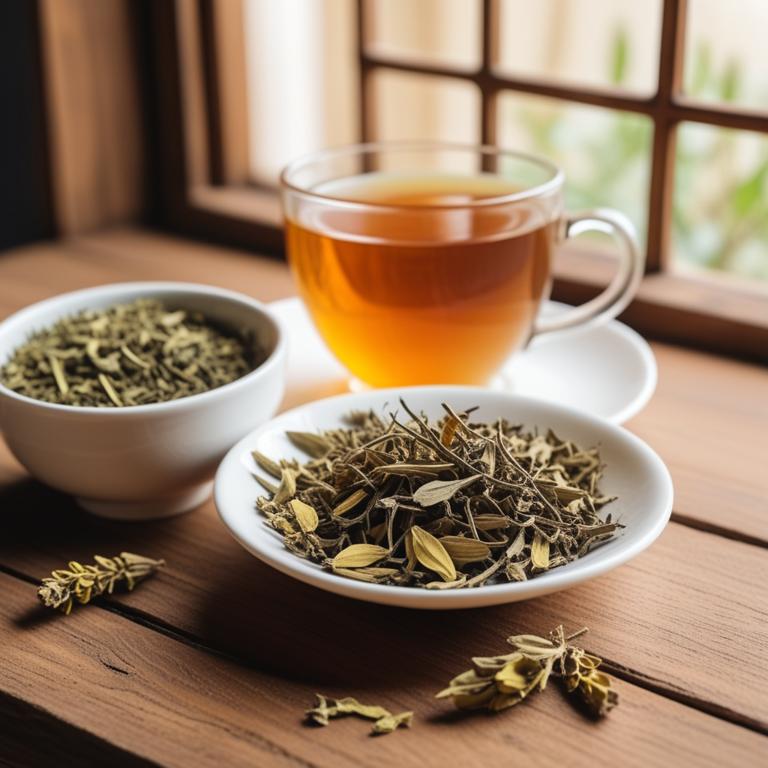
Cassia auriculata teas have been traditionally used to treat low sperm count due to their antioxidant, anti-inflammatory, and adaptogenic properties.
The bioactive constituents present in Cassia auriculata, such as flavonoids, alkaloids, and glycosides, help to improve sperm count and motility by reducing oxidative stress and promoting healthy sperm production.
Cassia auriculata teas also help to treat low sperm count by enhancing fertility and improving overall reproductive health, making it a potential natural remedy for this condition.
The benefits of Cassia auriculata teas include improved sperm quality, increased fertility, and enhanced overall reproductive well-being, making them a promising herbal preparation for addressing low sperm count.
Recipe:
- Gather 1 cup of Cassia auriculata leaves. Wash them in water to remove dirt.
- Boil 2 cups of water in a pot. Let it boil for 5 minutes.
- Add 1 tablespoon of Cassia auriculata leaves to the boiling water. Let it boil for another 5 minutes.
- Turn off the heat. Let the mixture steep for 10-15 minutes.
- Strain the liquid into a cup. Drink 1 cup of the tea 2 times a day for best results.
Cassia auriculata teas can be effective in treating low sperm count, but possible side effects include digestive issues, such as nausea, diarrhea, and stomach pain, as well as allergic reactions like skin irritation and respiratory problems.
When using Cassia auriculata teas to treat this ailment, take precautions to avoid excessive consumption, as it may interact with other medications and exacerbate underlying health conditions, such as liver or kidney problems, and pregnant or breastfeeding women should be cautious due to its potential effects on fetal development.